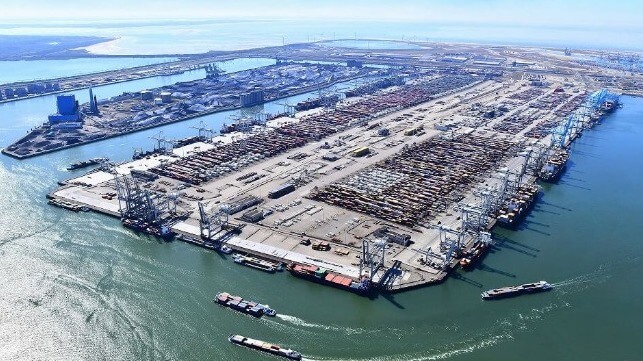European Ports Call Evasion of EU ETS a "Serious Concern"

The European Sea Ports Organisation (ESPO) is once again calling for the EU to take action to prevent and penalize any efforts by the shipping industry to revise routes or add intermediate ports of call to schedules as a way to avoid the EU Emissions Trading System. Following the European Parliament’s adoption of the agreements to bring the maritime industry into the "Fit for 55" emissions scheme, EPSO warns that evasion will threaten the integrity of the ETS eroding its credibility and robustness.
While ESPO welcomed the European Parliament’s adoption on April 18 of the plan that puts a price tag on the emissions produced by ships, they are calling evasion a “serious concern” that without robust action will undermine the efforts. The trade organization which represents ports across the EU and Norway says that the geographical scope of the EU ETS Maritime agreement could still lead to evasive port calls where shipping companies can avoid paying into the ETS by adding a call to a port outside the EU, or by reconfiguring their routes.
“We believe that the EU ETS maritime can be an effective instrument to boost the decarbonization of shipping. With the current scope, we fear however that shipping lines still have the choice either to go green, pay, or divert their journey to limit or avoid the ETS charge altogether. This would have a reverse effect on emission reductions and would seriously harm the business of certain ports in Europe. The Commission must keep a serious eye on this from day one. If there is evasion taking place, the rules have to be adapted,” said Isabelle Ryckbost, ESPO Secretary General.
ESPO supports the EU co-legislators' efforts to introduce a definition of “port of call” into the program which excludes stops in container transshipment ports neighboring the EU. The group however believes that this not be enough to ensure that evasion cannot take place. They note that transshipment ports only account for 65 percent of neighboring ports and that the programs must instead consider all non-EU neighboring ports.
The group also says it appreciates the European Commission’s efforts to recognize the dangers of evasion. They note that the Commission has committed to monitoring and reporting on the impact of EU ETS Maritime on port traffic, port evasion, and potential traffic shifts to transshipment hubs.

that matters most
Get the latest maritime news delivered to your inbox daily.
EPSO is calling for “early action” as soon as evasion is identified. The group however notes that changes in port traffic and the reconfiguration of shipping routes are almost impossible to reverse once they occur.
Finally, ESPO is also renewing its calls for the strategic use of revenues from EU ETS. Noting that the decarbonization of the sector will require significant investments in green refueling and recharging infrastructure in ports, EPSO is calling for a significant part of the ETS revenues to be invested in ports in the EU.
